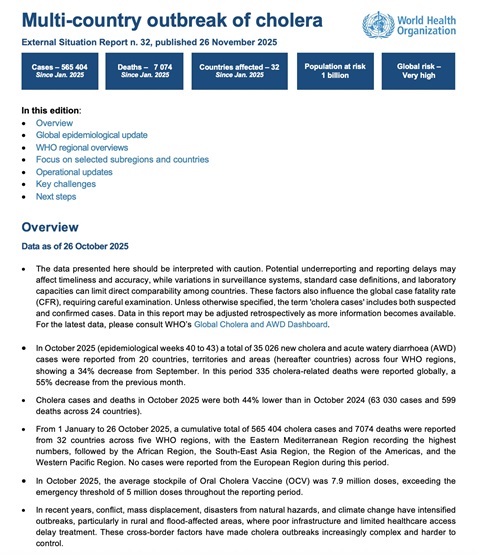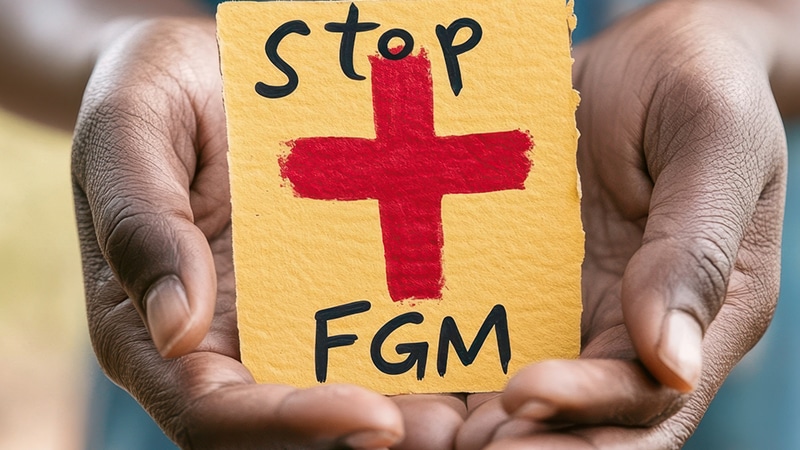To navigate grief, don’t avoid it—and seek social support, says expert – Harvard T.H. Chan School of Public Health

Report on Grief Management and Mental Resilience in the Context of Sustainable Development Goals
Introduction: Aligning Mental Health with Global Development Targets
This report summarizes evidence-based strategies for managing grief and enhancing mental resilience, as presented by Christy Denckla of the Harvard T.H. Chan School of Public Health. These findings are critically important for the advancement of the United Nations Sustainable Development Goals (SDGs), particularly SDG 3: Good Health and Well-being. The strategies outlined directly support Target 3.4, which aims to promote mental health and well-being as a fundamental component of public health.
Key Findings on Evidence-Based Grief Management
Research from the Population Wellness Lab highlights several core principles for navigating loss, which are essential for building resilient populations in line with SDG 3.
- Confronting Emotions: The most effective method for processing grief involves directly confronting and experiencing the associated difficult feelings, rather than practicing avoidance.
- Proactive Planning: Anticipatory discussions regarding end-of-life preferences and advance care planning have been shown to reduce the likelihood of a traumatic response following the loss of a loved one.
- Personalized Research Impetus: The research, driven by personal experience with loss, underscores the social and contextual factors that influence coping mechanisms, providing a deeper understanding for public health interventions.
The Role of Social Support in Fostering Resilience and Achieving SDGs
The importance of social support systems is a recurring theme, with direct implications for multiple SDGs. Building resilient individuals contributes to stronger, more sustainable communities.
- Seeking Community Connection: Actively seeking social support is a primary mechanism for boosting mental resilience during periods of loss. This practice is fundamental to achieving the well-being targets of SDG 3.
- Leveraging Community Institutions: Engagement with religious organizations, spiritual communities, or volunteering provides structured social connection. This reinforces the objectives of SDG 11: Sustainable Cities and Communities, by utilizing community infrastructure to foster social cohesion and support.
- Balancing Withdrawal and Re-engagement: While a temporary withdrawal for healing is a natural part of recovery, re-engaging with social networks is vital to prevent chronic isolation and promote long-term well-being, contributing to the creation of inclusive societies as envisioned in SDG 16: Peace, Justice and Strong Institutions.
Conclusion: Integrating Grief Support into Public Health and SDG Frameworks
The strategies for managing grief are not merely individual coping mechanisms but are integral to a comprehensive public health framework. By promoting open discussion of loss and strengthening community support networks, progress can be made toward achieving SDG 3. Furthermore, fostering socially connected and resilient populations is a cross-cutting objective that supports the broader 2030 Agenda for Sustainable Development, including the creation of inclusive and safe communities (SDG 11) and peaceful societies (SDG 16).
Analysis of Sustainable Development Goals (SDGs) in the Article
1. Relevant Sustainable Development Goals (SDGs)
-
SDG 3: Good Health and Well-being
- The article directly addresses mental health and well-being by focusing on strategies for managing grief, building mental resilience, and coping with traumatic experiences. It discusses “evidence-based tips for handling loss” and the importance of boosting “mental resilience during painful periods,” which are central components of ensuring healthy lives and promoting well-being for all at all ages.
2. Specific SDG Targets
-
Target 3.4: By 2030, reduce by one third premature mortality from non-communicable diseases through prevention and treatment and promote mental health and well-being.
- The article’s core subject is the promotion of mental health and well-being. It provides expert advice on how to navigate the negative emotions associated with grief and loss. Christy Denckla’s recommendations to “confront it head on, rather than avoiding their difficult feelings” and to seek “social support” are direct strategies aimed at promoting mental well-being and preventing the long-term negative health outcomes that can arise from unmanaged grief and trauma.
3. Mentioned or Implied Indicators
-
Availability and utilization of social support systems
- The article explicitly emphasizes the “importance of social support during a period of loss” and recommends “seeking connection through religious organizations, spiritual communities, or volunteering.” This implies that the extent to which individuals access and utilize these support networks can be an indicator of progress in promoting mental well-being within a community.
-
Adoption of effective coping strategies for mental health
- The article highlights specific, evidence-based coping mechanisms, such as “sitting with the feelings that come” and engaging in “advance care planning or end-of-life preferences” to mitigate traumatic responses. The prevalence and adoption of these productive coping strategies, as opposed to avoidance, can serve as an implied indicator for measuring mental resilience and well-being at a population level. The existence of the “Population Wellness Lab” further implies a focus on measuring these types of factors.
Summary Table: SDGs, Targets, and Indicators
| SDGs | Targets | Indicators |
|---|---|---|
| SDG 3: Good Health and Well-being | Target 3.4: Promote mental health and well-being. |
|
Source: hsph.harvard.edu
What is Your Reaction?
 Like
0
Like
0
 Dislike
0
Dislike
0
 Love
0
Love
0
 Funny
0
Funny
0
 Angry
0
Angry
0
 Sad
0
Sad
0
 Wow
0
Wow
0

















































































